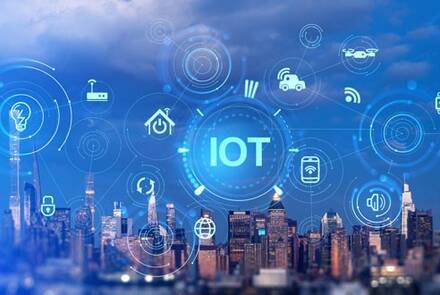Big Data Analytics in Healthcare
January 24, 2024
Big Data analytics has become a transformative force in the healthcare industry, offering unprecedented opportunities to enhance patient care, predict and prevent diseases, and improve public health outcomes. Here's a closer look at the application of Big Data in healthcare analytics:
- Patient Care and Personalized Medicine:
- Electronic Health Records (EHRs): Big Data analytics enables healthcare providers to efficiently manage and analyze vast amounts of patient data stored in electronic health records. This leads to better-informed decision-making, improved patient outcomes, and a more personalized approach to medical treatment (See also: IoT's Impact on Healthcare Access in Urban Centers).
- Predictive Analytics for Patient Monitoring: Continuous monitoring of patient data, such as vital signs, can help predict potential health issues. By analyzing patterns in the data, healthcare professionals can intervene early, preventing complications and improving patient care.
- Clinical Decision Support Systems (CDSS): Big Data supports the development of CDSS, helping physicians make more accurate diagnoses and treatment decisions by providing evidence-based recommendations derived from analyzing large datasets.
- Disease Prediction and Prevention:
- Epidemiological Studies: Analyzing large datasets can help identify patterns and trends in disease occurrence, aiding in the early detection of outbreaks and the development of preventive measures.
- Genomic Data Analysis: Integrating genomic data with clinical information allows for a better understanding of genetic factors in disease. This contributes to the development of personalized treatment plans and facilitates early identification of individuals at risk for hereditary diseases.
- Population Health Management: Big Data analytics supports population health initiatives by identifying at-risk populations, enabling targeted interventions, and optimizing resource allocation for preventive care.
- Public Health Surveillance:
- Real-time Data Monitoring: Big Data analytics facilitates the real-time monitoring of health-related data, such as infectious disease spread, environmental factors, and social determinants. This enables timely responses to public health emergencies.
- Healthcare Fraud Detection: Analyzing large datasets helps identify patterns of fraudulent activities within the healthcare system, ensuring resources are allocated efficiently and preventing financial losses.
- Research and Development:
- Drug Discovery: Big Data analytics accelerates the drug discovery process by analyzing vast datasets related to genomics, proteomics, and clinical trials. This allows researchers to identify potential drug candidates more efficiently.
- Clinical Trials Optimization: Big Data helps in the recruitment and selection of suitable participants for clinical trials, improving trial efficiency and increasing the likelihood of successful outcomes.
- Challenges and Considerations:
- Data Privacy and Security: With the increased use of sensitive health data, maintaining robust security measures and ensuring patient privacy are critical challenges.
- Interoperability: Integrating data from various sources, including different healthcare systems and devices, requires standardized formats and interoperable systems.
- Ethical Considerations: Ethical concerns related to the use of patient data for research and analytics must be carefully addressed to build and maintain public trust.
Conclusion
In summary, the application of Big Data analytics in healthcare holds immense potential to revolutionize patient care, disease prediction, and public health. As technology continues to advance, leveraging these insights will become increasingly important for improving overall health outcomes and the efficiency of healthcare delivery.
For more information about Trigyn’s Big Data Analytics services, Contact Us.






